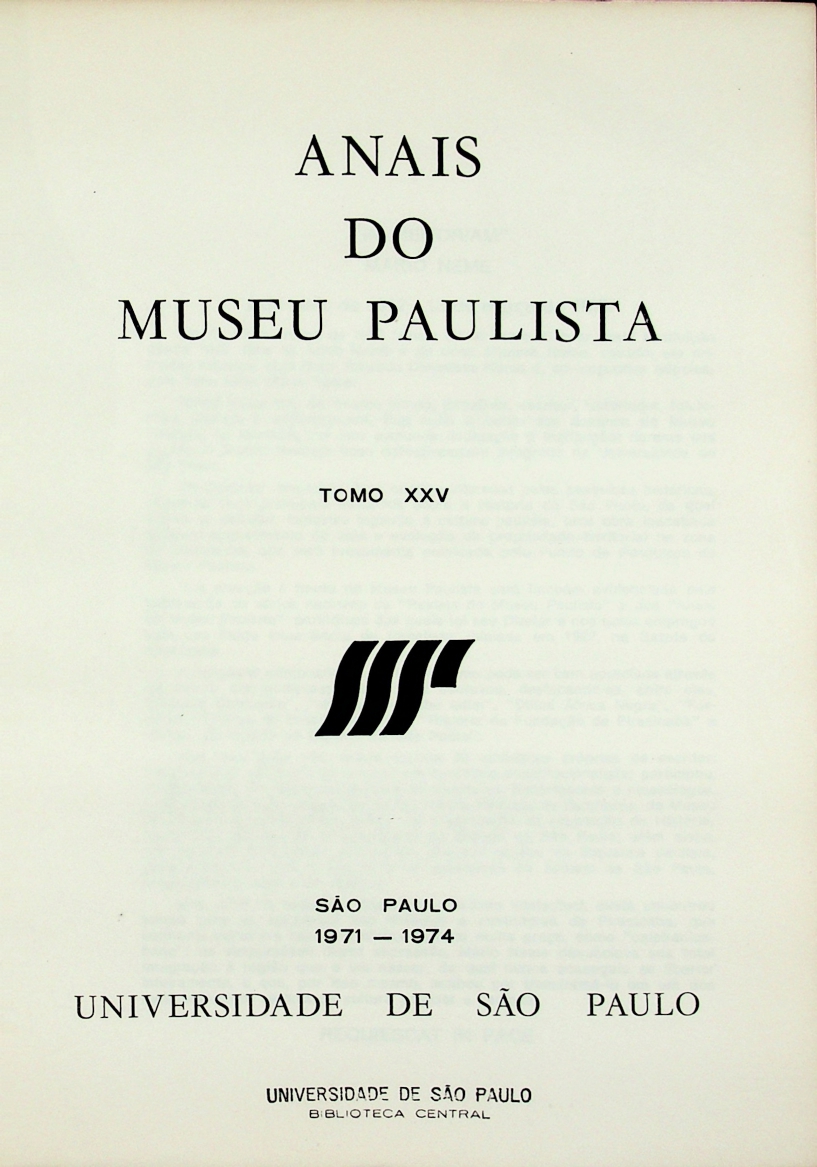Comentário sobre leis dos bens de raiz das ordens religiosas no Brasil
DOI:
https://doi.org/10.11606/1982-02671974TomoXXVe4Resumo
The portuguese legislation that was applied to Colonial Brazil, was based upon Philipine Ordinances, code published in 1603. There was a great number of extraordinary laws, completing or opposing the Ordinances. These laws tried to adapt the Code to the real situations, either in Portugal or in Brazil. The Philipine Code remained here for three centuries, from 1603 to 1917, when the Brazilian Civil Code was enforced. The reasons of this long permanency could be in the centralist and absolutist character of this code. One of the aspects of this legislation is examined here, the landed property belonging to the religious orders in Brazil. The text of the Ordinances was ratified and completed by means of extraordinary laws, since 1609, imposing limits upon the anlargement of these landed property of Religious Orders. This process reached at its maximum during Dom Joseph’s reign, in the second half of the eighteenth century. There are possibilities of a survey of the real estate of the religious orders during the Colonial Period, through the examination the official correspondence of the documents requested by the Metropolitan Government.
Downloads
Downloads
Publicado
Edição
Seção
Licença
Copyright (c) 1974 Maria Cecília Stávale Malheiro

Este trabalho está licenciado sob uma licença Creative Commons Attribution 4.0 International License.
Autores que publicam nesta revista concordam com os seguintes termos:
- Autores mantém os direitos autorais e concedem à revista o direito de primeira publicação, com o trabalho simultaneamente licenciado sob a Licença Creative Commons Attribution que permite o compartilhamento do trabalho com reconhecimento da autoria e publicação inicial nesta revista.
- Autores têm autorização para assumir contratos adicionais separadamente, para distribuição não-exclusiva da versão do trabalho publicada nesta revista (ex.: publicar em repositório institucional ou como capítulo de livro), com reconhecimento de autoria e publicação inicial nesta revista.
- Autores têm permissão e são estimulados a publicar e distribuir seu trabalho online (ex.: em repositórios institucionais ou na sua página pessoal) a qualquer ponto antes ou durante o processo editorial, já que isso pode gerar alterações produtivas, bem como aumentar o impacto e a citação do trabalho publicado (Veja O Efeito do Acesso Livre).



